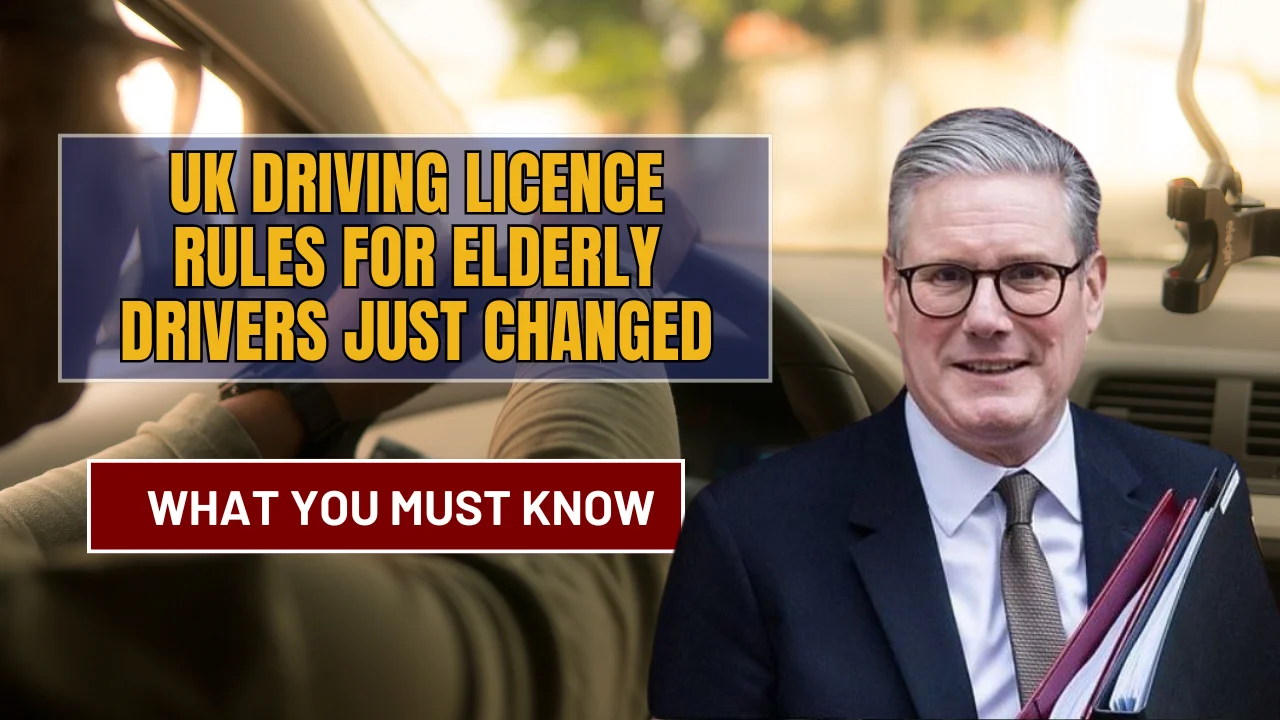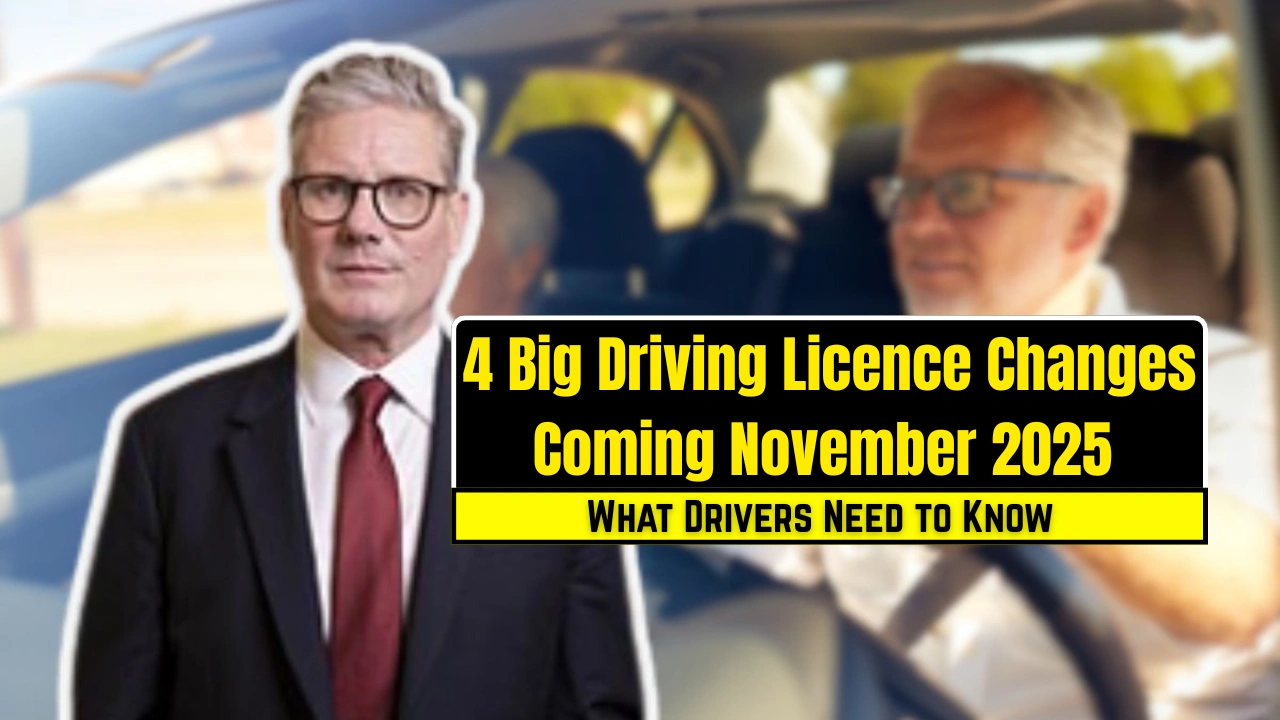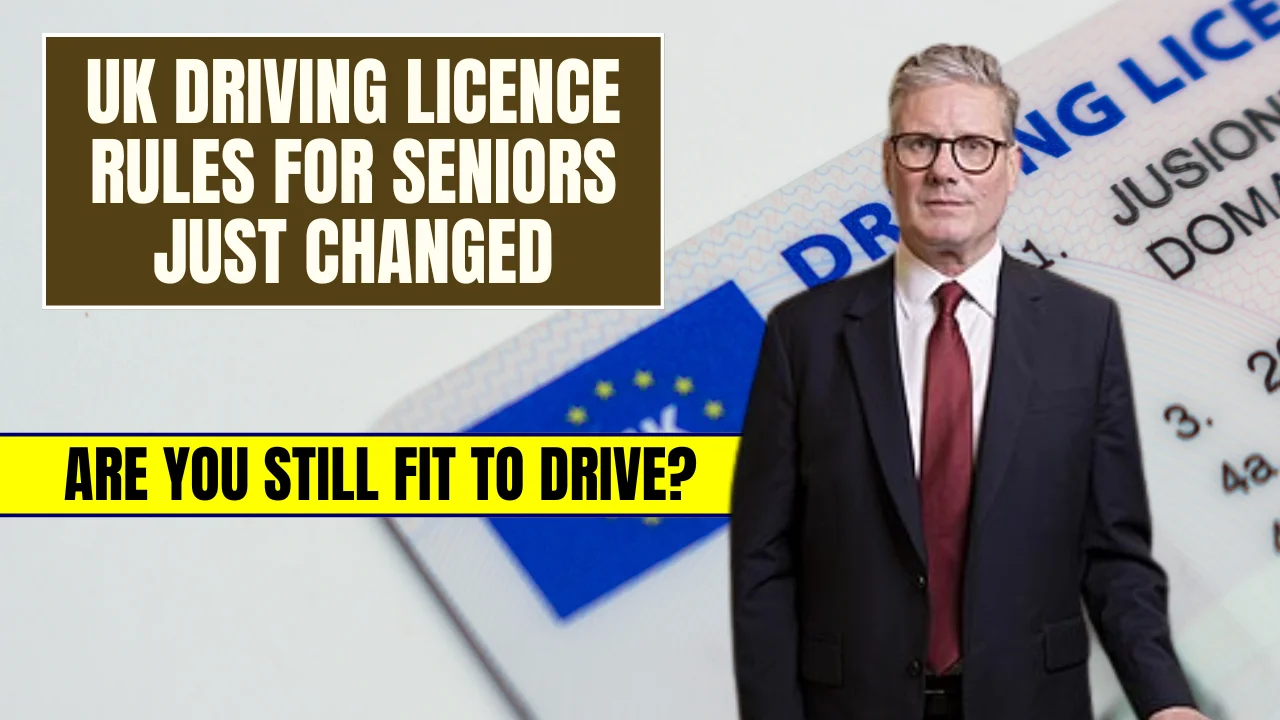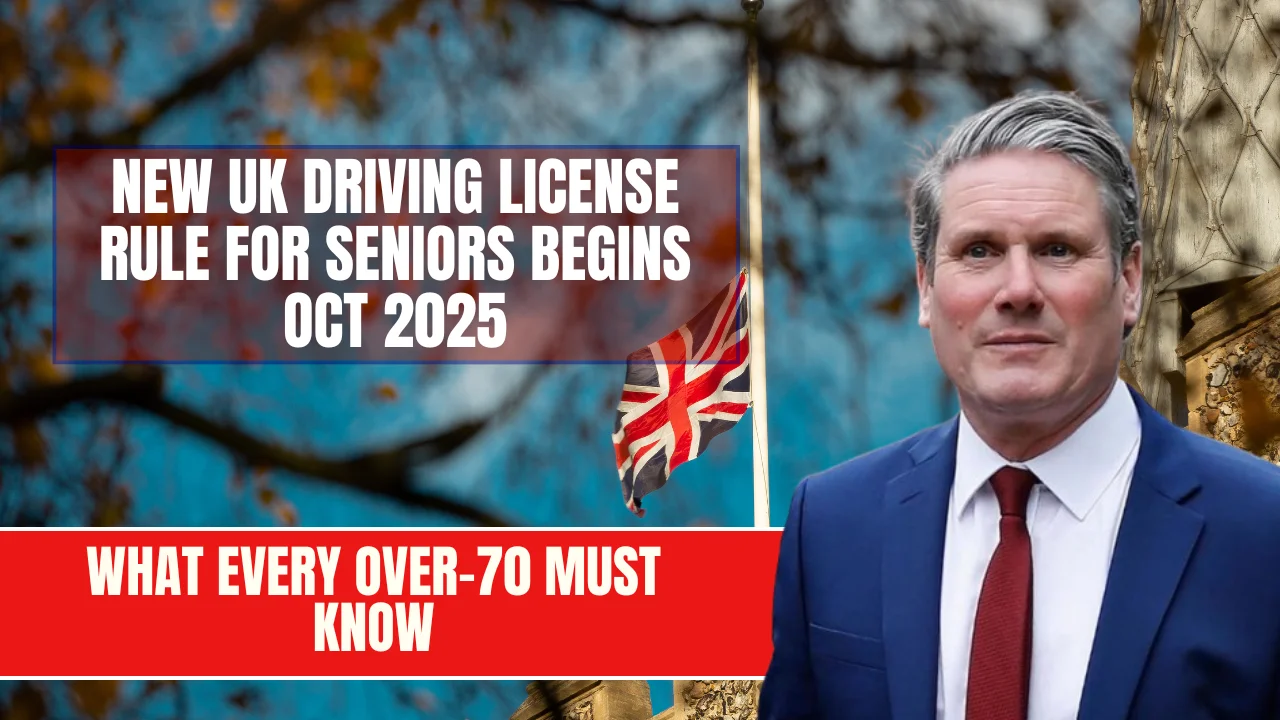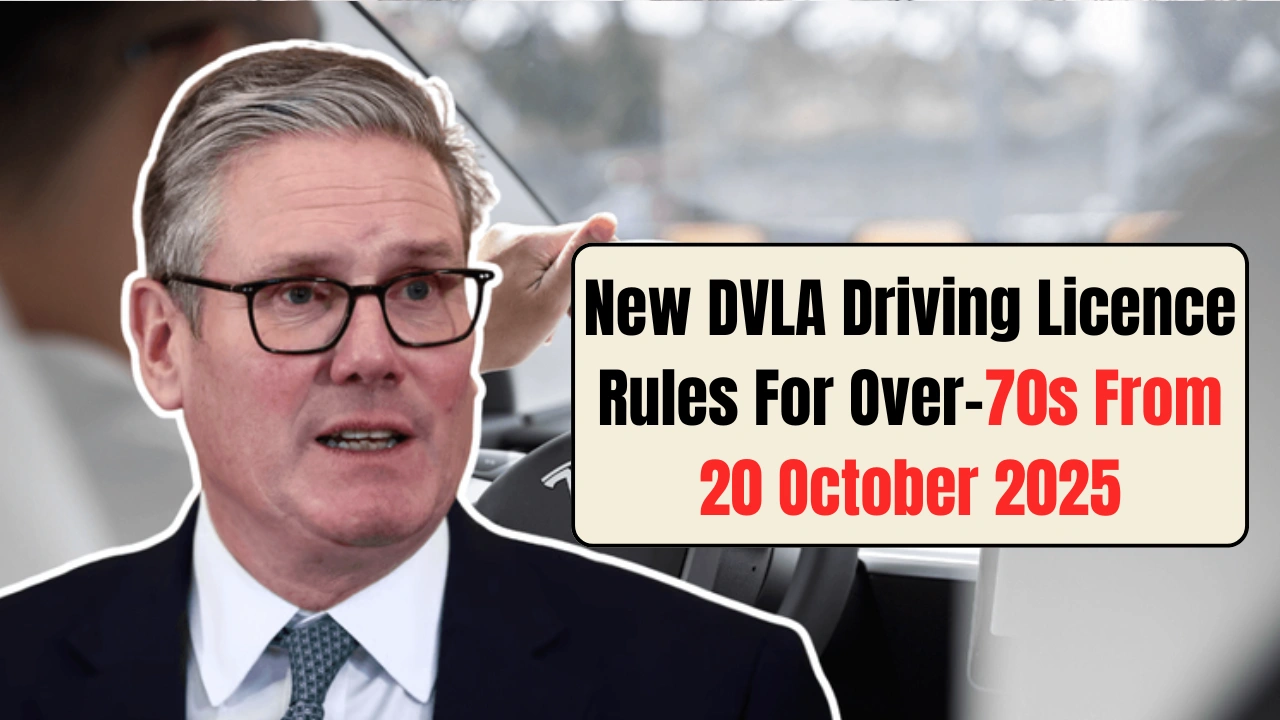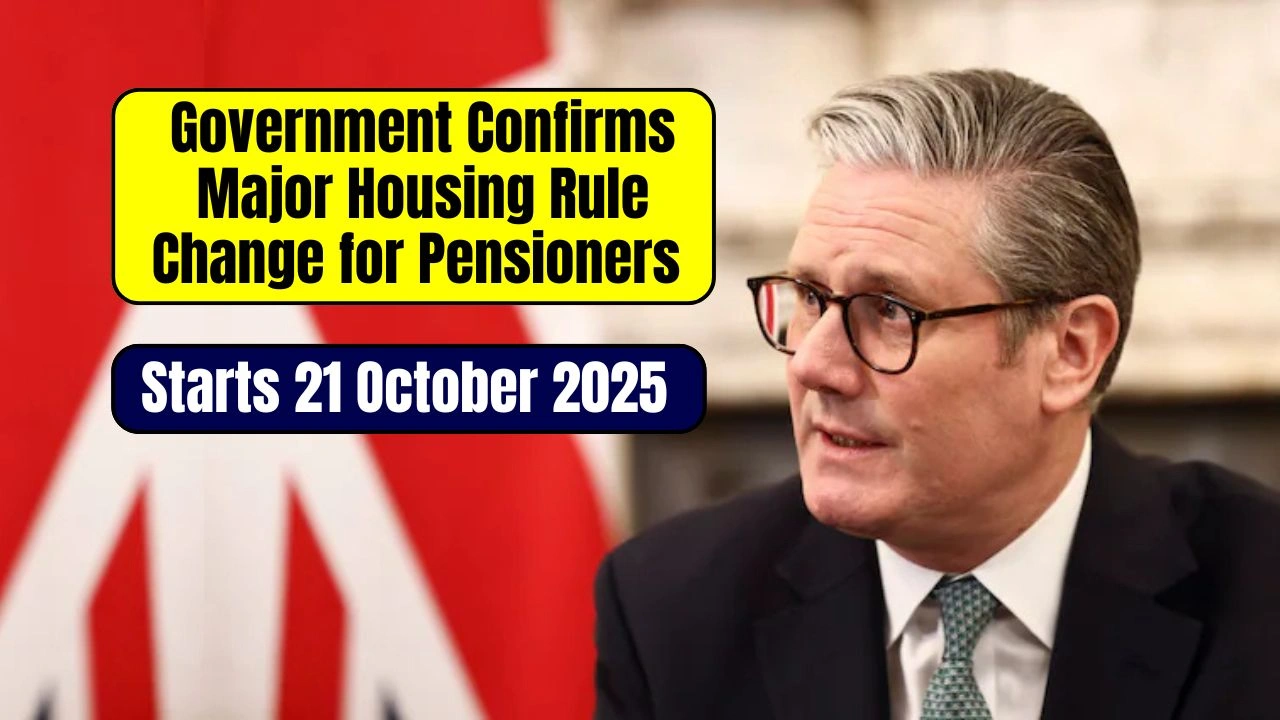UK Driving Licence Rules for Elderly Drivers: If you are 65 or approaching that age, you need to pay close attention to the UK driving licence rules for elderly drivers. In 2025, a new set of regulations will come into force, and they will affect every driver aged 65 and over. These changes are not just minor tweaks. They include mandatory eye tests, health declarations, and more frequent licence renewals. So, whether you still drive daily or only now and then, it is worth understanding exactly what is coming and how to stay road-ready.
The UK driving licence rules for elderly drivers are being updated to make roads safer while still allowing healthy, capable seniors to stay behind the wheel. The government’s focus is to reduce accident risk through regular medical checks and better awareness of age-related driving issues. The changes might sound strict at first, but they are based on data, not assumptions, and are designed to strike the right balance between safety and independence.
UK Driving Licence Rules for Elderly Drivers: Major Updates for 2025
Under the new 2025 guidelines, drivers aged 65 and above will now need to renew their licences every three years, rather than waiting until age 70. This shift in policy reflects growing concern over age-related health conditions that can affect driving ability. The UK driving licence rules for elderly drivers now also include compulsory eyesight tests, detailed health assessments, and, in some cases, practical driving tests. These changes mean that staying on the road safely now requires more active involvement from older drivers, their GPs, and opticians. The goal is not to stop seniors from driving but to keep everyone safer, for longer.
Overview Table: UK Driving Licence Rules for Elderly Drivers
| Category | Details |
| Start of New Rules | 2025 |
| Affected Age Group | Drivers aged 65 and over |
| Licence Renewal Frequency | Every 3 years starting at age 65 |
| Eye Test Requirement | Must be completed within the last 2 years |
| Health Declaration | Mandatory, includes all relevant conditions |
| Medical Reports | Can be requested by DVLA if health concerns are raised |
| Driving Assessment | Required for some medical conditions |
| Notification Period | Reminder sent 56 days before licence expiry |
| Licence Validity | 3 years if approved |
| Consequences of Non-Compliance | Delay or refusal of licence renewal |
Background and Rationale for the 2025 Driving Licence Changes
The updated rules have been introduced following research and recommendations from road safety experts and medical professionals. Statistics have shown that drivers aged 75 and older are more likely to be involved in serious or fatal accidents. This increase is often linked to age-related changes such as slower reaction times, declining vision, and health issues like dementia or heart disease.
As the number of elderly drivers continues to rise in the UK, the government is focusing on proactive prevention rather than late-stage enforcement. These changes are designed to ensure that drivers remain fit and capable without losing the independence that driving provides. The aim is early detection of any risks, allowing intervention before they become dangerous.
Key Changes to Licence Renewal for Drivers Over 65
The most noticeable change is the shift to a three-year renewal cycle, beginning at age 65. This is a big change from the previous policy, which only required drivers to renew their licences from age 70. Under the new rules, elderly drivers must now complete the following steps every three years:
- Health Declaration: A form disclosing any health issues that could affect driving. This includes both physical and mental conditions.
- Recent Eye Test: Drivers must submit proof of a valid eyesight test from within the past two years.
- Medical Reports: If a health declaration raises concerns, the DVLA may request additional documentation from a GP or medical specialist.
- Driving Assessment: If necessary, a practical driving evaluation may be required to confirm the driver is safe on the road.
These steps are designed to ensure that all drivers over 65 remain medically fit to drive.
Why Are These Measures Necessary?
There are several clear reasons why the UK driving licence rules for elderly drivers are changing. Firstly, road safety statistics consistently show a rise in serious collisions involving drivers aged 75 and over. Health factors like poor vision, delayed reactions, and cognitive impairment can all play a part.
Secondly, the ageing population means more people will be driving later in life. This raises the need for regular, formal checks to ensure safety for all road users, including pedestrians, cyclists, and other drivers. Lastly, these changes encourage senior drivers to take a more active role in their own safety by staying on top of health checks and being open about any issues that might impact their driving.
Detailed Renewal Process from 2025
Here is a breakdown of how the new renewal system works for drivers aged 65 and above:
- Notification Letter: Drivers will receive a reminder from the DVLA 56 days before their current licence expires.
- Eye Test: The driver must complete a vision test and submit proof that their eyesight meets current legal standards.
- Health Questionnaire: A medical form must be filled out, listing any illnesses, medications, or ongoing treatments that may affect driving.
- Further Medical Evaluation: If the DVLA finds anything concerning in the health declaration, they may request a report from a GP or another medical specialist.
- Driving Assessment: For those with complex health conditions, the DVLA may ask for a practical assessment of driving ability.
- Licence Decision: If all the above steps are completed and approved, the licence will be renewed for another three years.
Missing any part of this process could delay the licence renewal or result in a denial.
Implications for Drivers Affected
The new rules will impact older drivers in several ways:
- Administrative Workload: Drivers will now need to manage more paperwork and appointments than before.
- Potential Costs: Eye tests and medical evaluations may come with additional costs, depending on where and how they are completed.
- Licence Restrictions: Some drivers may face conditions such as daytime-only driving or limits to short local trips.
- Insurance Review: Insurers may start reviewing medical information more closely or adjust premiums for drivers with specific health risks.
- Licence Refusal: In cases where a driver is not deemed fit, the licence may not be renewed. Appeals are possible but require proper medical support.
These changes are not designed to punish elderly drivers but to ensure they are still able to drive safely.
Support and Advice for Senior Drivers
If you are approaching 65 or are already there, there are several steps you can take now to prepare:
- Book Regular Eye Exams: Stay ahead of the two-year requirement and keep your vision sharp.
- Monitor Your Health: Be open with your GP about any issues that could impact driving.
- Keep Records: Have medical documents ready in case the DVLA requests further information.
- Practice Driving Skills: Consider a senior driver refresher course or assessment to stay confident behind the wheel.
- Reach Out for Help: Organisations like Age UK can help with forms, appointments, and understanding your rights.
Being informed and proactive will help ensure your licence remains valid and your driving remains safe.
FAQs
The changes begin in 2025 and apply to all drivers aged 65 and over.
Every three years, starting from age 65.
Yes, a recent eyesight test (within two years) is required with every renewal.
Not automatically. Only those with medical risks flagged by the DVLA may need to complete a driving assessment.
Your licence may be restricted or not renewed. You have the right to appeal and submit further medical evidence.
